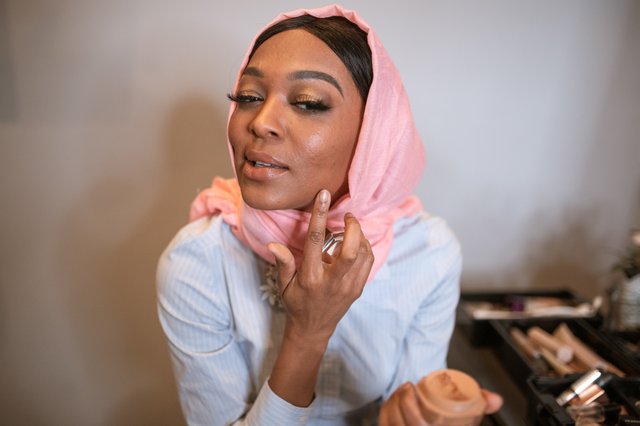“Woman is now delivered from the servitude imposed by her female nature… she is no longer the prey of overwhelming forces; she is herself, she and her body are one. It is sometimes said that women of a certain age constitute “a third sex”.”
Simone de Beauvoir
It is possible to have a full sex life at any age. In some times or circumstances it is necessary to work harder to get satisfaction from the sexual experience.
In menopause and after it, in addition to the possible physical changes that may occur in a woman and before which various medical approaches are considered, it is essential to review and develop other areas that favor the comprehensive management of that woman.
In maturity and old age there are gradual changes that lead to a slowing of the sexual response and the need for personal and couple accommodation. If it has been positively transited, there will be a learning of life that allows to enjoy many things in a dimension of the simple and uncomplicated, giving as a result that the changes of the age can mean that other facets are opened to explore.
If sexual expression is not preserved in menopause, it can be very difficult to regain it later.
In this post we will develop topics such as the importance of talking about sex with your partner and with your doctor; a complicated situation for many women who grew up in a time when it was a taboo subject and silence was the norm.
Practical topics of great interest, such as the connection between sex, exercise and body image, are of utmost relevance when the body is changing and possibly moving away from aesthetic patterns considered successful.
Some research has shown that when you have physical care and exercise routines, your sexual health has a better chance. Diet and sex show a link between problems with high cholesterol and difficulties with lubrication. We’ll see what hormone replacement therapy work tells us in which testosterone is added to enhance sexual desire and what happens with hysterectomy and sexuality.
We will review the sexuality of women and their alternative to masturbation and, when approaching the older woman with a partner, several aspects of interest appear: how to learn to be an older partner, the importance of making time for affection, how to enrich sexuality in a long-term couple and how to overcome obstacles to a satisfactory sexuality.
We will finish by collecting myths and false conceptions about menopausal women’s sexuality in order to analyze them with the aim of stimulating a positive attitude towards female sexuality, especially that of older women.
Talking about sex
Psychologists and couples therapists have always known how important it is to talk about sex. It is necessary to learn how to do it in a clear and positive way. A significant number of couples find it difficult to express their feelings about sex, making communication problems one of the primary causes of sexual dysfunction.
Many women complain that their husbands don’t listen to them and many men complain that their wives don’t understand them. Communication about sex life is essential for continued sexual pleasure, especially in long-term relationships.
Unfortunately, couples develop severe blocks to effective communication. Many women resentfully hold on to moments in the past when they tried to talk or do something sexual and were unsuccessful, and let them become serious interferences to their expression.
You might consider some alternatives to improve communication: talking or writing about each other’s vision of a deep and satisfying sexual relationship, detailing what gives you sexual pleasure, developing plans, agreeing on places or times for sexual activity.
Learn to really listen to the other person, understand that there are times when the only job is to listen to the partner and try to understand their experiences and feelings, give them your full attention by asking questions just to clarify.
Many of the problems that older people may have that interfere or feel interfere with their sexuality can be treated if they consult with them. On the other hand, numerous problems could be prevented if specialists would take the time to ask or explain not only about changes in their sexuality over the years, but also about the possible effects of surgeries and medications and about ways to improve their sexuality.
Today the sexuality of older people has come to be accepted by most as a fact of life. However, the common complaint among older people is that it is difficult to get information about sexuality in later life.
Many are looking for ways to maintain a long-standing relationship successfully or to develop a new one. If your doctor would open the door to this topic, they would be happy to answer your many questions.
Body image and maturity
The physical changes experienced with age, in and of themselves, do not interfere with a person’s ability to enjoy sex, but they can bring discomfort, especially the outward appearance that can become a major interference. These reactions are more common among women.
If a person has strong self-esteem, which comes from within, she will not be as disturbed by changes or aesthetic patterns. Despite this, a woman may be upset by exposing her body to a new partner or fearing her regular partner’s reaction. This may lead her to seek to turn off the light or limit herself to activities where her body shapes are not exposed.


What can a woman do to feel better about her body?
She could focus on the pleasure her body can give for herself and her partner. Sensual pleasure is what matters, and a couple can be inventive in extracting and rehearsing what is conducive to finding or increasing it. Masturbation is another way a woman can learn to develop sensual and sexual pleasure, and in the process, feel more positive about her body.
They will be very sensitive about criticism of their body’s imperfections; if they have a partner who is persistently critical, their difficulties may be greater.
Learning to accept your body, does not mean that a person does not make positive changes and strive to keep it in good shape.
To enjoy sex, it is very important to develop a healthy sense of your own sexuality. Your attitudes, emotions, and desires influence your sexual self and how your partner perceives you. Couples should work to maintain a healthy sense of their own sexuality, and one of the best ways to do this is to exercise.
Exercise
The physiological and psychological benefits of exercise are well documented. It affects both your body and your mind. Clearly it can contribute to a longer life expectancy, lower blood pressure and the risk of heart disease, aid weight loss and improve stamina – these are just some of the benefits of a good exercise routine.
Psychologically, it promotes a positive outlook, increases self-esteem, helps to reduce stress levels and increase positivity.
In recent years, several studies have explored the connection between exercise and sexual performance. Naturally, to be more sexually available, it helps to be in better physical shape. If someone is in good physical shape they have more sexual stamina, and consequently probably more sex, than someone who is not.
Fatigue is one of the symptoms of decreased stamina and, fatigue is one of the causes for sexual disinterest. When one partner is tired, the opportunity for sexual pleasure and activity decreases dramatically.
There are three key components to improving stamina: aerobic endurance, muscular fitness, and neuromuscular relaxation. Aerobic endurance is improved through a variety of cardiovascular exercises such as cycling, jogging, swimming and others. Weight resistance exercises to build muscular fitness are found in gyms. Muscle relaxation exercises include yoga and aerobic exercises that are designed to relax the body and mind.
The results of research on the effects of an exercise program on older men over 9 months showed that exercise is not only good for health but also for sex life. These men reported that they had more sex, had more orgasms, and engaged in more acts of physical intimacy. Studies are needed on the sex and exercise connection in women.
Exercises to strengthen sexual muscles
Exercises called Kegel exercises may be especially important for older men and women to prevent the loss of pelvic muscle tone that can increase with age.
The woman may notice that the muscles around her vagina have less tone, which may give her and her partner less friction and consequently less intensity during intercourse.
These exercises of contraction and relaxation of the pubococcygeus muscle, performed with the legs open and about 50 times a day (spending no more than 4-5 minutes), can have effects by improving vaginal tone and achieving climax more easily with more intense orgasms. The strength of these muscles can be important if your partner’s erection is not as firm, as is often the case at this age, to help him or her get an erection.
Many women who do the exercises increase their sexual desire by making them more aware of their sexual sensations.
Diet and sex
There are reports of studies showing that high levels of fat can have undesirable sexual consequences. Just as fat in the bloodstream can build blockages in the arteries of the heart, so it can build blockages in the arteries of the penis, interfering with circulating blood and a man having difficulty getting an erection.
Women may also have problems with cholesterol, which blocks the vaginal area and consequently suffer from reduced lubrication.
Testosterone and Hormone Replacement Therapy
HRT can stand for estrogen, estrogen and progesterone and gradually a third hormone testosterone. This hormone has an important role in libido, usually, it has had a medical care in women, only when the levels are too high because of the possible cosmetic or masculinizing effects that these can produce.
Recently, there has been increased attention to the effects of low testosterone. These levels decline dramatically in young women whose ovaries have been surgically removed. For other women, testosterone generally begins to decline around the time of menopause, although it is not as marked as estrogen and progesterone.
However, the drop in testosterone available is intended to balance the two hormones – testosterone to increase desire and estrogen to prevent vaginal dryness and reduce painful intercourse. Both preparations have been approved by the FDA.
If testosterone use is being considered, remember the following: The effects attributed to testosterone were demonstrated only in women with levels far below normal. Testosterone supplements do not produce increased libido in postmenopausal women with normal testosterone levels.
Each person has a special sensitivity to testosterone. So it can take time to experiment with low doses until the desired effect is achieved. Some women feel anger or depression when levels are too high. Excessive doses can cause acne, hirsutism, weight gain.
Testosterone can also be used to increase the sensitivity of the clitoris when it has decreased or dulled. A topical cream is available for this purpose.










